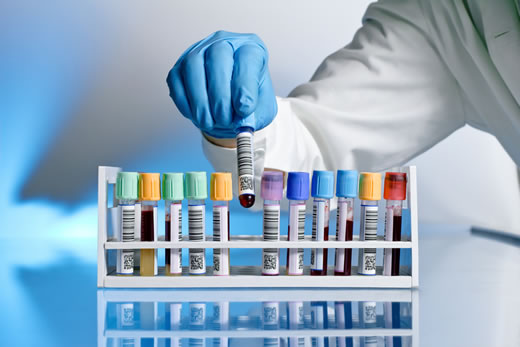Research Facts

Research Summary
Scientists in the Woodruff Health Sciences Center received more than $944 million in sponsored research funding in fiscal year 2022 within schools of medicine, public health and nursing, the Winship Cancer Institute, and the Emory National Primate Research Center.
Key health sciences research centers funded by the National Institutes of Health include:
- Emory Winship Cancer Institute - a National Cancer Institute-designated center
- Emory Vaccine Center - one of the world's largest vaccine research centers
- Emory Center for AIDS Research
- Georgia Clinical & Translational Science Alliance
- Influenza Pathogenesis & Immunology Research Center
- Alzheimer's Disease Research Center
- Chemical and Biology Discovery Center
Other multidisciplinary centers and institutes include:
- Emory Transplant Center
- Emory/Georgia Tech Predictive Health Institute
- Global Health Institute
- Heart and Vascular Center
- Center for Comprehensive Informatics
- Brain Health Center.
- Lowance Center for Human Immunology
Emory is a partner in two state collaborations of academia, business, and government: the Georgia Research Alliance and the Georgia Cancer Coalition.
Other key research partners include:
- Centers for Disease Control and Prevention
- Children's Healthcare of Atlanta
- Georgia Institute of Technology
- Morehouse School of Medicine
- University of Georgia
The WHSC is a national leader in technology transfer, with 27 products in the marketplace and 12 more in human clinical trials. At least 55 start-up companies have resulted from licensing of Emory technologies. Over the past two decades, Emory has received more than $884 million in licensing revenues from drugs, diagnostics, devices, and consumer products.

Research Highlights
Highlights of research from the Woodruff Health Sciences Center, including schools of medicine, public health and nursing, the Winship Cancer Institute, Emory National Primate Research Center, and Emory Healthcare.
- Helped develop lifesaving procedures including angioplasty and drug-eluting stents, and newer technologies such as off-pump surgery.
- Created lamivudine (3TC) and emtricitabine (FTC), two of the most commonly used and most successful HIV/AIDS drugs, taken by more than 94% of U.S. patients on therapy and by thousands more around the world
- Developed one of the leading vaccine candidates against HIV, already tested in preclinical and early stage clinical trials and currently in phase II trials
- Developed brain mapping to guide effective surgical approaches (deep brain stimulation) to treat movement disorders such as Parkinson's and dystonia
- Discovered the gene responsible for fragile X syndrome, the most common cause of inherited intellectual disability, and now working to develop drug therapy to treat it.
- Helped develop belatacept, a post-transplant drug that is less toxic and more effective than traditional immunosuppressants.
- Discovered the role of PD-1 (programmed cell death 1) in inhibiting the T cell immune response to chronic viral infections, which helped lead to the development of new immunotherapy drugs cancer.
- Winship Cancer Institute of Emory University is the only National Cancer Institute-designated cancer center in Georgia.
- The Emory National Primate Research Center of Emory University is one of only seven NIH-designated national primate research centers in the country.
- Emory is a leader in technology transfer, with more than 50 products in various stages of development of regulatory approval – 27 products having reached the marketplace and 12 more in human clinical trials. Over the past two decades, the WHSC has helped Emory launch 57 start-up companies and bring more than $806 million into Georgia in licensing revenues from drugs, diagnostics, devices, and consumer products.
- The Emory Vaccine Center is one of the largest academic vaccine centers in the world, with scientists working on vaccines for AIDS, malaria, hepatitis C, influenza, and tuberculosis.
- The Emory Alzheimer's Disease Research Center has attracted 71 federal grants over five years totaling $122 million.
- The research partnership between Emory and Georgia Tech includes the No. 2-ranked (U.S. News & World Report) Wallace H. Coulter Department of Biomedical Engineering, the Regenerative Medicine and Engineering Center, the Emory/Georgia Tech Predictive Health Institute, and one of the nation's largest NIH-funded research programs in nanomedicine.
- Emory University total external research funding, FY23: $1.1 billion
- In 2023, Emory received more than $485 million and is amongst the top 20 in the nation overall for institutional funding from the NIH. Emory’s individual schools all figured in the top 20 in their categories, with two in the top 5.
- School of Medicine: 17th in the nation
- School of Nursing: 5th in the nation
- School of Public Health: 5th in the nation